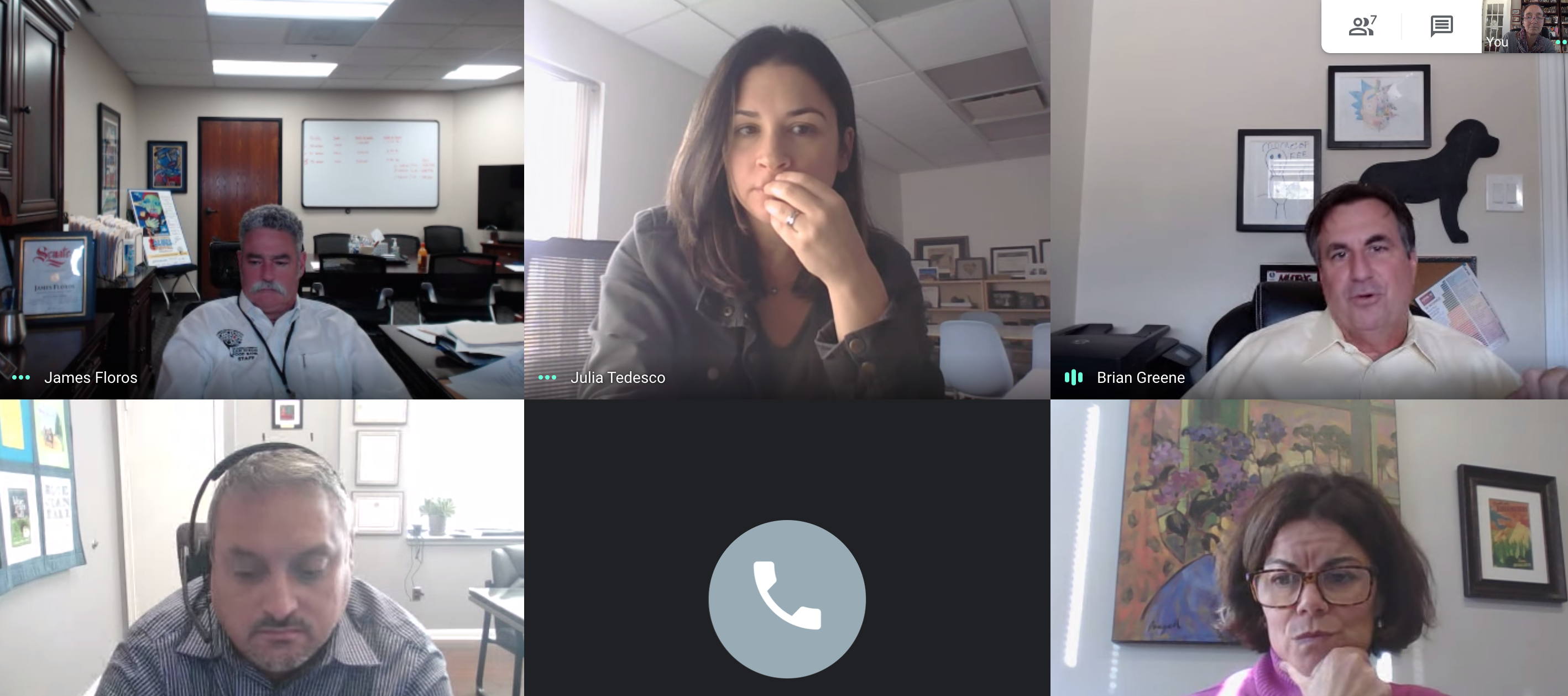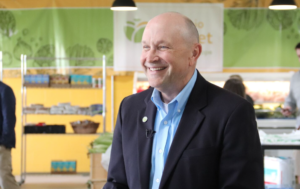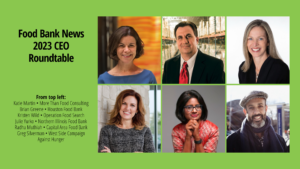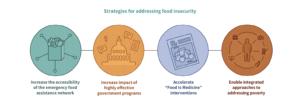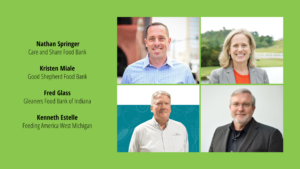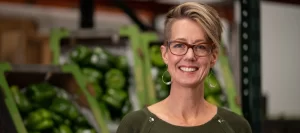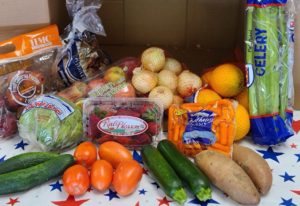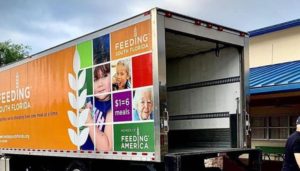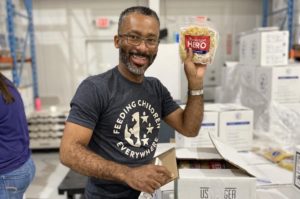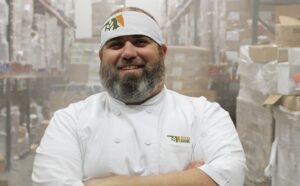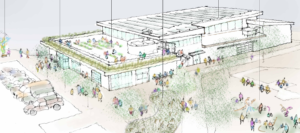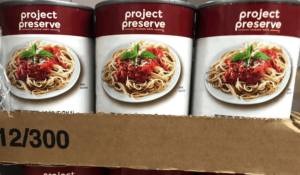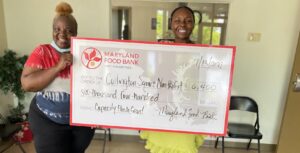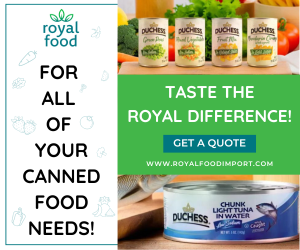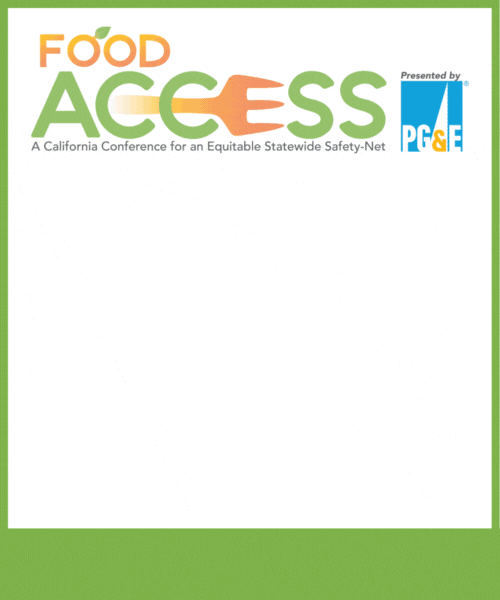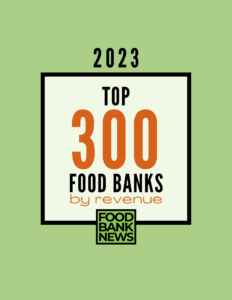As the biggest news story of 2020, Covid-19 played a role in the conversation at Food Bank News’ CEO roundtable discussion, held online in early November. But more prominent were perennial questions about ways in which the problem of hunger should be framed and solved.
There were unexpectedly positive outcomes from Covid. Home deliveries, once deemed too logistically difficult, became areas of expertise. Nutrition classes brought directly into clients’ kitchens through online connections proved to be more engaging than traditional classes. New distribution patterns, such as the creation of high-volume “super pantries,” helped to strengthen pantry networks.
Even the massive increase in food distribution nationwide was seen as having a silver lining by helping to serve as a catalyst for other interventions. “Our food distribution is an engine,” noted Brian Greene, President and CEO of Houston Food Bank. “Being able to distribute food does give us the ability to have more impact.”
Carlos M. Rodriguez, President and CEO of Community Food Bank of New Jersey, agreed. “We provide food and once we have folks around that proverbial table, then we can ask, ‘What else is missing? What can we do to accelerate the path out of here?’” CFBNJ, for example, was able to “literally double our SNAP outreach efforts,” as it expanded its relationships with county officials in the process of getting more food distributed, Rodriguez said.
High-profile food distributions during Covid have helped cast food banks in a new light, noted James Floros, President and CEO of Jacobs & Cushman San Diego Food Bank. “This is the Renaissance for food banks,” he said. “There is such a spike in appreciation among people for whom food banks were not on their radar. Now they really appreciate who we are and what we do.”
While Covid may have slowed down some of the work that food banks do to address the root causes of hunger, it has also offered the possibility of raising the profile of that work, said Julia Tedesco, President and CEO of Rochester, NY-based Foodlink. “Covid has given us a new opportunity we all have to collectively take advantage of — to raise the bigger question, to push the bigger issue, which ultimately is the government’s responsibility to its people.”
Despite these wide-ranging positive outcomes, the roundtable also recognized that the tremendous increase in food distribution due to Covid represents a negative trend. “We would say that the higher volume distribution is a sign of other systems failing,” said Thomas Reynolds, CEO of Northwest Harvest.
Katie Martin, PhD, Executive Director of the Foodshare Institute for Hunger Research & Solutions in Bloomfield, Conn., noted that the higher volumes of food being distributed during Covid may obscure the more integral work food banks are doing to end hunger in the first place. Measuring pallets of food is “not a great indicator if it doesn’t reflect the other good work that we’re doing,” she said. “We like reducing the line, not necessarily just providing more food.”
While the food bank leaders agreed on the importance of reducing the line, they saw the possibility of different approaches to getting there. The seemingly small matter of whether clients should have to register to receive food pointed to some of these differences.
While Houston Food Bank did not require clients to register for pandemic distributions, Greene sees the ability to register and track clients as beneficial. “Being able to close the loop on referrals would be huge,” he said. “And also being able to use big data to see what combinations of interventions statistically have the best impact under certain circumstances.”
Rodriguez was in agreement, noting, “I almost see it as a disservice if you just give food and don’t ask why. At the end of the day, it’s building a relationship to get to an underlying understanding of what else we can do.”
Northwest Harvest, meanwhile, has taken a firm stand against client registrations. “When we talk to the people who access our services, they prefer not to be registered,” Reynolds said. As a result, “Our partners are contractually obligated not to ask for registration for Northwest Harvest food. And we make it a prerequisite with any government contracts. We negotiate that no registration is required.”
Northwest Harvest’s stance on client registrations is an extension of its focus on human-centered design. “Those with lived experience of hunger are the experts,” Reynolds said. “To the extent that we can center their experience, it leads to better programming, better design and better choices.”
Integral to Northwest Harvest’s approach is the idea that food is a right, a concept that is codified in some form or fashion in 170 countries around the world, except the U.S., North Korea and other outliers, Reynolds said. Northwest Harvest is working on a constitutional amendment that would get food recognized as a right in Washington state. It is also striving to work more closely with partners who are Black, indigenous or people of color (BIPOC), which is leading it toward better relationships with food-insecure populations. “We’re finding that there’s a better sense of trust and credibility,” he said.
Food banks need to lead by example when it comes to helping their agencies embrace the notion of food justice, Dr. Martin said. “It’s a lot of training and capacity-building around human-centered design and trauma-informed care,” she said. Food banks should help their agencies by encouraging them to engage volunteers with lived experience who can provide a more dignified pantry experience. “As food banks, we can help provide those role models and share information so we build it from the ground up,” Dr. Martin said.
The group agreed that ending hunger requires food banks to ask the right questions and frame the problem correctly. “What is the root cause of hunger? It’s poverty. That’s the conversation,” Greene said.
Added Tedesco, “It goes back to food being a human right. It’s not just about SNAP but, ‘What’s the basic living wage?’ Those are the types of questions food banks can be leaders in getting the nation to have.”
The food bank leaders agreed that the problem of hunger should not be framed as a simple matter of getting to zero hunger, community by community. Hunger is a problem of wealth disparity, so the goal of achieving hunger-free communities “doesn’t deal with the underlying ‘-isms’ and disparity in wages that only keeps getting wider,” Rodriguez said. “It’s a nice little outcome to put in a funding report … but it’s not ending the fundamental problem.”
The notion of estimating the number of food-insecure people in an area and equating it with the need for a certain number of pounds of food “takes a complex problem rooted in poverty and frames it from a very simplistic model,” Dr. Martin said. “That math does not work, that equation does not hold.”
Framing hunger relief as a logistics problem simply offers people a way to use charity to feel better about the disparities in society, Reynolds said. “We should be talking about the fact that hunger isn’t a food problem, it’s a systems problem,” he said. “Having a tangible goal related to systems change is necessary to confront the issue.”
Because food is the resource that food banks have, there is a tendency to always go back to framing hunger as a matter of simply moving food from where it is plentiful to where it is needed. “Food is our hammer and everything looks like a nail,” Greene said. “So we mis-identify. There is a consistent education process that the food banking system has to do a better job of so we don’t just keep going back to 30 years ago.”
Getting at the root causes of hunger is not necessarily an easy fix. “What you’re really talking about is societal change,” Floros said. “If it were an easy solution, we would have figured it out a long time ago.”
Dr. Martin, for one, is encouraged, noting that food banks and pantries increasingly are recognizing the importance of addressing hunger as a systemic issue rooted in poverty and politics. “For decades, food banks have been very comfortable not talking about politics or getting involved in the messy issues of poverty and racism,” she said. “Covid makes it glaringly obvious that we have to go there if we’re going to talk about really solving the issues of hunger.”
CAPTION ABOVE: Clockwise from top left: James Floros of Jacobs & Cushman San Diego Food Bank; Julia Tedesco of Foodlink, Brian Greene of Houston Food Bank, Dr. Katie Martin of the Foodshare Institute for Hunger Research & Solutions; Thomas Reynolds of Northwest Harvest (by phone) and Carlos Rodriguez of Community Food Bank of New Jersey.
Like what you’re reading?
Support Food Bank NewsConnect with Us:
